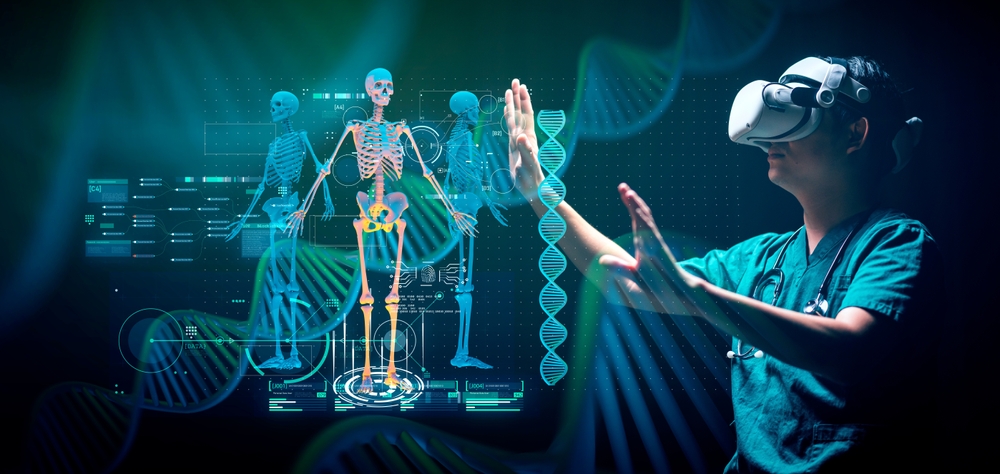
AI’s Leap into Biomedicine: Revolutionizing HealthcareAI’s Leap into Biomedicine: Revolutionizing Healthcare Artificial intelligence (AI) is transforming various industries, and biomedicine is no exception. AI’s advanced capabilities are revolutionizing healthcare by empowering: Precision Medicine: * AI algorithms analyze vast patient data to identify patterns and predict disease risks, enabling personalized treatments tailored to individual genetic profiles. * Machine learning models can optimize drug dosage and treatment plans, improving patient outcomes and reducing side effects. Drug Discovery and Development: * AI tools automate and accelerate the drug discovery process by screening millions of potential molecules. * Virtual screening and predictive modeling identify promising candidates, reducing development time and costs. Diagnostics and Early Detection: * AI-powered imaging algorithms enhance medical scans, enabling earlier and more accurate diagnosis of diseases. * Machine learning models can analyze patient records and identify patterns associated with disease progression, alerting healthcare providers at the earliest stages. Health Monitoring and Intervention: * Wearable devices and smartphone apps integrate AI capabilities to track health metrics, monitor symptoms, and provide real-time interventions. * AI algorithms can detect subtle changes in vital signs or activity patterns, alerting users to potential health issues. Beyond the Hype: While AI holds immense promise for biomedicine, it is crucial to address ethical and practical challenges: * Data privacy and security must be ensured as AI systems handle sensitive medical information. * Algorithmic bias must be prevented to ensure fair and unbiased outcomes for all patients. * Collaboration between clinicians and AI researchers is essential to ensure that AI tools are integrated into clinical practice effectively. Conclusion: AI’s leap into biomedicine is reshaping healthcare. By empowering precision medicine, accelerating drug discovery, enhancing diagnostics, and enabling continuous health monitoring, AI has the potential to transform disease management, improve patient outcomes, and reduce overall healthcare costs. As AI technology continues to advance, its impact on biomedicine will only grow, bringing unprecedented possibilities for the future of healthcare.
Posted inNews